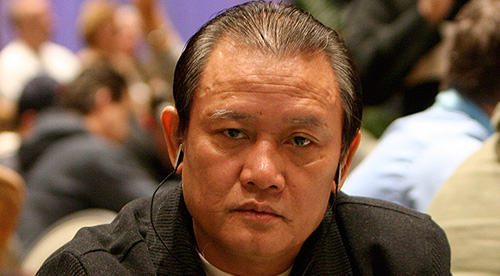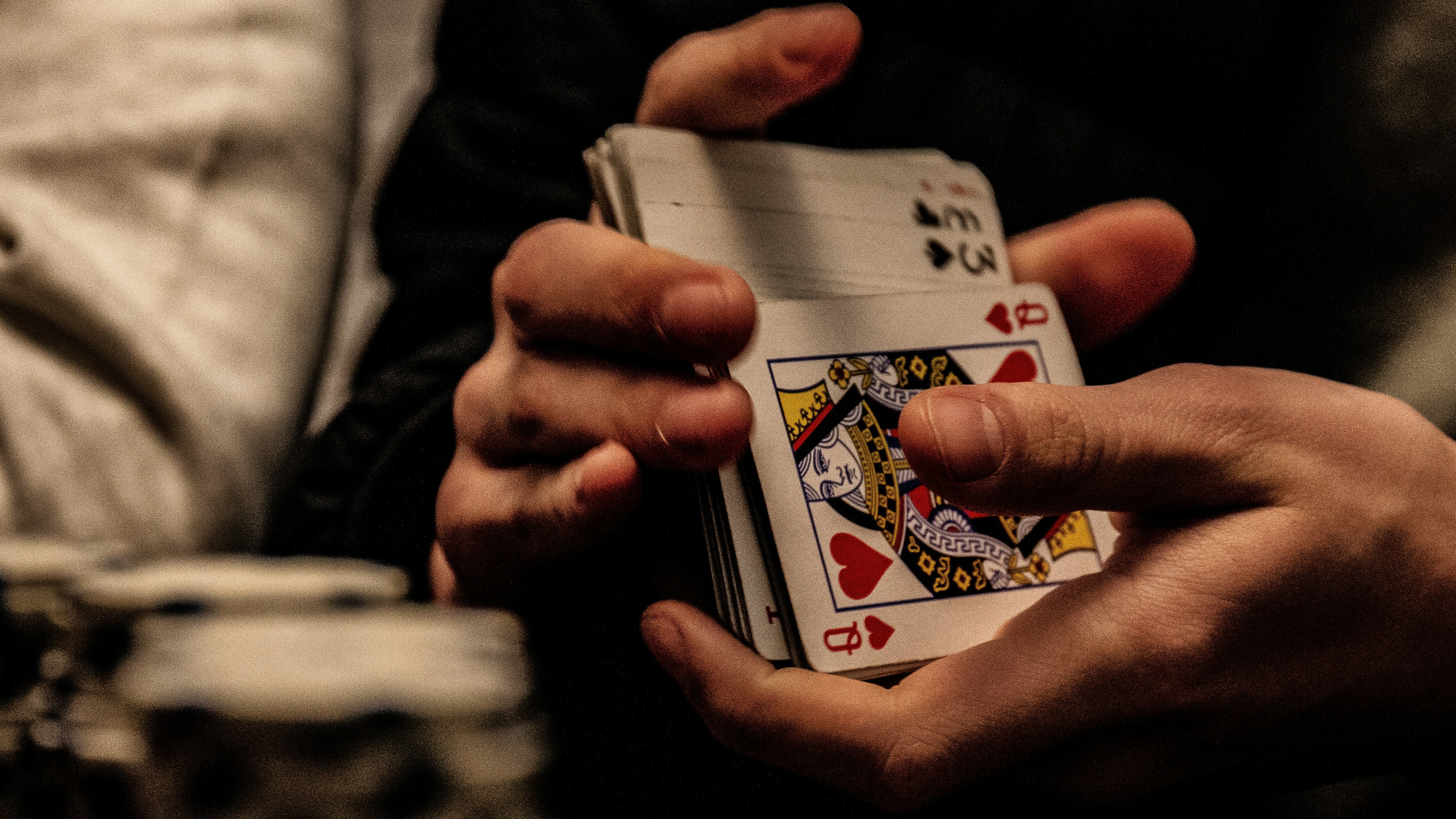Egyptian Billy
In 2018, one of the most interesting and disturbing poker scandals in Britain took place at the Alea casino in Glasgow, Scotland. Several outraged players called the police after they began to suspect someone was systematically robbing them of money through a technologically advanced scam. The target of their accusations was a well-known local player going by the nickname "Egyptian Billy".
The investigation revealed that Billy likely didn't work alone. His accomplice in this deceptive act was supposedly the dealer himself. The key element of the entire scam was a deck of electronically marked cards and a small camera, probably discreetly hidden in a mobile phone. The scam worked on the principle of a brief moment when the dealer put the deck on the table or was dealing. During this moment, the camera could scan the individual cards and instantly send this information to another device connected to an earpiece in Billy's ear. The result was precise knowledge of which cards were on top of the deck, and even the prediction of which player would have the strongest hand.

Although all the details of the scheme were never fully revealed, the principle is known from a series of other famous cases, including the scandal involving Mike Postle. Postle was accused of exploiting RFID technology in cards during a live stream, thereby gaining real-time access to information about other players' cards. The case of Egyptian Billy thus shows that a poker table can be a place not only of elaborate bluffs but also highly sophisticated cheating. And when technology and human greed are involved, the line between play and crime can quickly disappear.
Peter Jeppsen
Online poker has its base, its legends, but also its dark corners. One of the biggest digital scandals that shook the world of high stakes is the case of Danish professional Peter Jeppsen. Once a respected player with massive wins even before Black Friday, made headlines in 2019 for a very different reason: cheating through spy software. The Copenhagen city court found Jeppsen guilty of systematically infecting his opponents' computers with malicious software over six years, giving him real-time access to all their cards.
The whole plan was carefully prepared. Jeppsen physically or through third parties installed malware on other players' laptops. Once activated, it became a powerful spy unit that provided Jeppsen with key information about his opponents and their cards. After several suspicious losses and complaints from affected players, Danish authorities launched a five-year investigation, which led to a court case with strong evidence. Three witnesses—two men and one woman—openly admitted they participated in installing the software that Jeppsen subsequently used.

For his actions, Jeppsen received more than two years in prison, a fine of 3.5 million euros, and the state confiscated nearly 3.9 million dollars, which was approximately the sum he won through cheating. Strikingly, Jeppsen was once considered a top online poker player; in 2008, during a No-Limit Hold’em session, he won almost $500,000 in a single hand from Tom Dwan (aka "durrrr"), setting a record for the biggest online win at the time.
Darren “DooshKam” Woods
Not every poker coach plays by the rules he preaches. The case of Darren Woods, known online as DooshKam, is clear proof of that. From 2007 to 2012 he managed to build a complex network of scams, which he ran directly from the environment where he had earned a reputation as an expert. Woods, known most as a high-stakes fixed-limit games player, used his status as a professional and sponsor to appear trustworthy. He also became known as an author of training videos for poker sites, further strengthening his image as a respected expert. Behind the scenes, however, he pulled very different strings.
Using a VPN connection, he created multiple accounts on various online poker sites, pretending to be different people. He set up computers to mask their origin, thus deceiving the security systems of poker sites. In this way, he could simultaneously play against unsuspecting opponents—often even against his own main account—and manipulate the course of play to suit his needs.

His scam was uncovered in 2011 by a TwoPlusTwo forum user named Feruell, whom Woods contacted with a rakeback offer. When Feruell later watched one of Woods' instructional videos, he realized that Woods was playing against him in it—under a different identity. This triggered a wave of suspicion. A detailed analysis revealed that Woods used multiple accounts in his sessions, which is a serious violation of online gaming rules. After an extensive investigation, Darren Woods was charged with 13 counts of fraud and subsequently sentenced to 15 months in prison. The court also ordered him to pay compensation of 1 million euros. If the fine was not paid, he faced up to 6 years behind bars.
Men "The Master" Nguyen
In the poker world, few names elicit both respect and contempt like Men "The Master" Nguyen. On one hand stands an impressive career as a tournament player with countless wins. On the other, a shadow of ongoing allegations about dirty practices that have followed him for decades. Men’s biography is packed with trophies, but also with gossip and open accusations of backstage collusion, team manipulation, and unsportsmanlike conduct. It's not just that, during the 2008 World Poker Open, he earned a reputation for arrogant “slowrolling” and rude behavior towards dealers. More serious are statements from other respected players such as Daniel Negreanu, who directly called him a cheater, and Justin Bonomo, who brought even more serious allegations.
According to Bonomo, an incident indicating systematic rule-breaking occurred at the Commerce Casino in Los Angeles in the early 2000s. During a fire alarm at a hotel, tournament chips were found in Men’s room, raising questions about their origin and purpose. This incident intensified suspicions that Men not only managed his own game, but also led a team of players—so-called Vietnamese “runners”—who followed his orders.

One of the most disturbing accusations relates directly to this organized group. According to testimony, Men allegedly instructed his corrupt players to automatically fold if they faced him and he bet or raised against them. This kind of team play borders on outright cheating, especially when it influences tournament outcomes and cash distribution. Despite controversies, a bad reputation and multiple open hostilities against him, Men Nguyen was inducted into the Poker Hall of Fame in 2001. He still has access to most casinos around the world and continues to appear at major tournaments.
The fine line between legend and outcast
Poker is a game where logic, courage, and psychology meet, but also a game where high stakes attract not only champions, but also cheaters. Cases like Men Nguyen, Peter Jeppsen, Darren Woods, or Egyptian Billy show us how far some are willing to go to get what they want. Each of these cases was different, but all share the same motive—a desire to win at any cost.
These scandals aren’t just gripping stories from the dark side of the poker world. They are also a reminder that fairness is not a given, and that trust between players and organizers is fragile. Technology, team play, manipulated cards, or multiple identities—the arsenal of cheaters is increasingly sophisticated, and so the protection of the game's integrity must be just as thorough. Despite all the scandals, poker still holds its place as the royal game of strategy and character. But only as long as we make sure that the table we sit at doesn’t turn into a theater of lies.
Sources: Getcoach/ PokerTube/ Unsplash/ thehendonmob/ Wikimedia/ DailyRecord/ PokerNews




